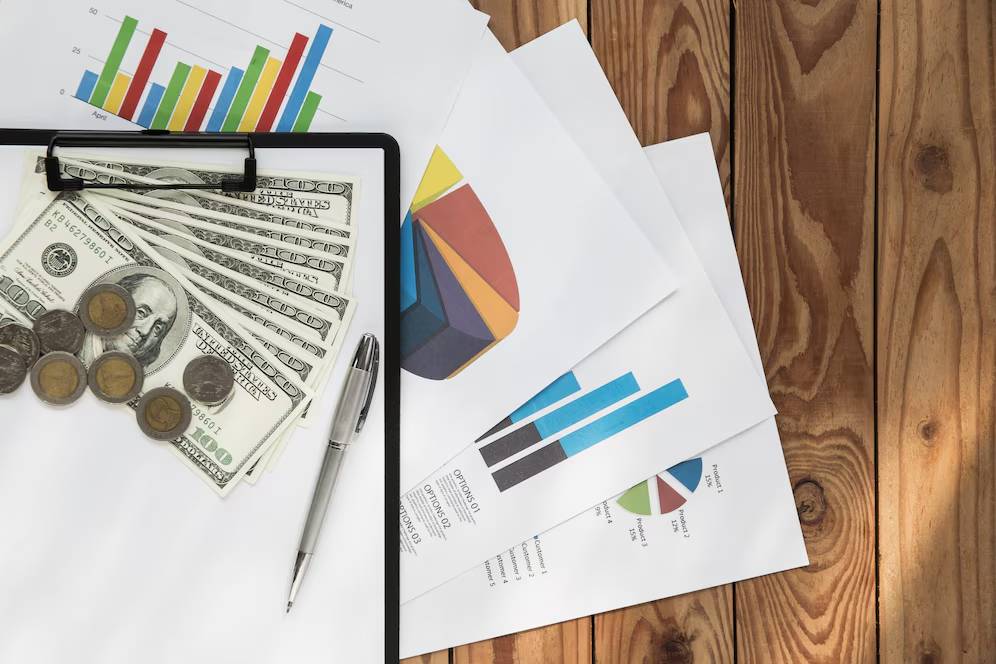
How Inflation Affects Stock Market Performance
Inflation is one of the most important economic forces influencing the stock market. When inflation rises or falls, it affects how consumers spend, how companies manage costs, and how investors value future earnings.
Understanding the inflation impact on stock market trends is key for anyone looking to make sense of market behaviour and manage investments wisely.
What Is Inflation?
Inflation refers to the general increase in prices over time. It means that the purchasing power of money declines — what you could buy for £10 last year might cost £10.50 this year.
Inflation is usually measured by indicators like the Consumer Price Index (CPI) or the Retail Price Index (RPI) in the UK. Moderate inflation is a sign of a growing economy, but when inflation rises too quickly, it can cause problems across markets and industries.
Why Inflation Matters to Investors
Inflation can directly affect investment returns in several ways:
- It erodes the real value of future cash flows and dividends.
- It increases costs for businesses, which can reduce profit margins.
- It can trigger central bank action, such as interest rate hikes.
These effects play out differently across sectors, but high or unpredictable inflation generally adds uncertainty to financial markets.
How Inflation Impacts Stock Prices
The relationship between inflation and the stock market is complex. Let’s explore the main channels through which inflation affects stocks.
1. Corporate Profits

One of the most immediate impacts of inflation is on corporate earnings.
- Rising input costs: Companies face higher prices for raw materials, labour, and energy.
- Reduced consumer spending: If wages don’t rise as fast as prices, people may cut back on non-essential items.
This combination can squeeze profit margins. While some firms can pass higher costs on to consumers, others — particularly those in competitive industries — may struggle.
2. Interest Rate Reactions
Inflation often prompts central banks to raise interest rates to cool down the economy. This leads to:
- Higher borrowing costs for companies and individuals
- Lower consumer demand
- Reduced business investment
For investors, higher interest rates make fixed-income assets like bonds more attractive relative to stocks. This can cause money to flow out of equities, particularly in growth sectors like technology.
3. Valuation Pressure
Stock prices are based not just on current earnings but also on expectations of future profits. Inflation makes those future profits worth less in today’s money.
In high-inflation environments, investors may:
- Use higher discount rates when valuing companies
- Demand larger returns to compensate for inflation risk
This tends to reduce the price investors are willing to pay for stocks, especially for companies whose cash flows lie far in the future.
Sectors That React Differently to Inflation
Not all sectors are affected equally by inflation. Here’s a breakdown of typical winners and losers when prices rise:
Sector Likely Performance During Inflation
- Consumer Staples: Often stable, as demand for essentials stays steady.
- Energy: Can benefit if commodity prices rise.
- Financials: May do well due to higher interest margins.
- Technology: Often faces pressure from valuation concerns.
- Utilities: Sensitive to borrowing costs but viewed as defensive.
These patterns aren’t strict rules. They provide a good starting point to see how inflation could impact various investments.
Historical Examples of Inflation and Market Trends
Looking back at past inflationary periods helps illustrate how the stock market responds.
- 1970s (UK and US): Characterised by high inflation and weak stock market performance. Energy stocks and commodities performed better than most other sectors.
- 2008–2010: The financial crisis kept inflation low. Central banks cut rates, which helped fuel a strong stock market recovery.
- 2021–2022: Inflation surged after the pandemic, driven by supply chain issues and energy prices. Central banks raised rates aggressively, leading to sharp corrections in growth stocks.
These examples show that context matters. Strong demand-driven inflation might not harm the market as much as inflation from supply shocks or too much monetary policy.
Inflation and Investor Sentiment
Inflation doesn’t just affect company earnings — it also influences investor behaviour.
- Uncertainty is growing. When inflation moves unpredictably, investors struggle to predict earnings and adjust their portfolios.
- Risk appetite drops as inflation makes investors cautious. They prefer safe havens and income-generating assets.
- Volatility rises: Markets can shift quickly when investors respond to new data or central bank updates.
- In this market, smart investors seek inflation hedges. They look at gold, real estate, or inflation-linked bonds, which are called index-linked gilts in the UK.
Long-Term vs. Short-Term Impact
Inflation impacts the stock market in different ways based on how long you plan to invest:
- Short-term: Stocks may fall as investors react to interest rate hikes, slowing demand, or inflation data surprises.
- Long-term: Many companies can handle inflation by changing prices, managing costs, and keeping growth steady.
For decades, the stock market has provided real returns that beat inflation. However, it has also had uncomfortable periods.
Managing Inflation Risks as an Investor

You can’t control inflation, but you can manage how your portfolio reacts to it.
- Diversification: Keep a mix of asset types and sectors. Include those that might gain from inflation.
- Quality focus: Companies with strong pricing power, low debt, and solid cash flow can handle inflation better.
- Stay informed: Watch economic reports, central bank comments, and inflation forecasts. This helps you anticipate changes.
Staying invested during inflation can be tough. Still, sticking to your plan usually pays off in the long run.
Conclusion: Staying Steady Amid Inflation Pressures
Inflation is a normal part of the economic cycle. When it runs high, it can stress financial markets. For investors, this creates uncertainty around profits, interest rates, and valuations. All of these factors influence share prices.
Not all stocks react to inflation in the same way. Also, not all inflation is negative. The key is to understand the context. Watch how central banks respond and stay diversified. With a balanced approach and a focus on long-term goals, investors can manage inflation without making hasty decisions.


